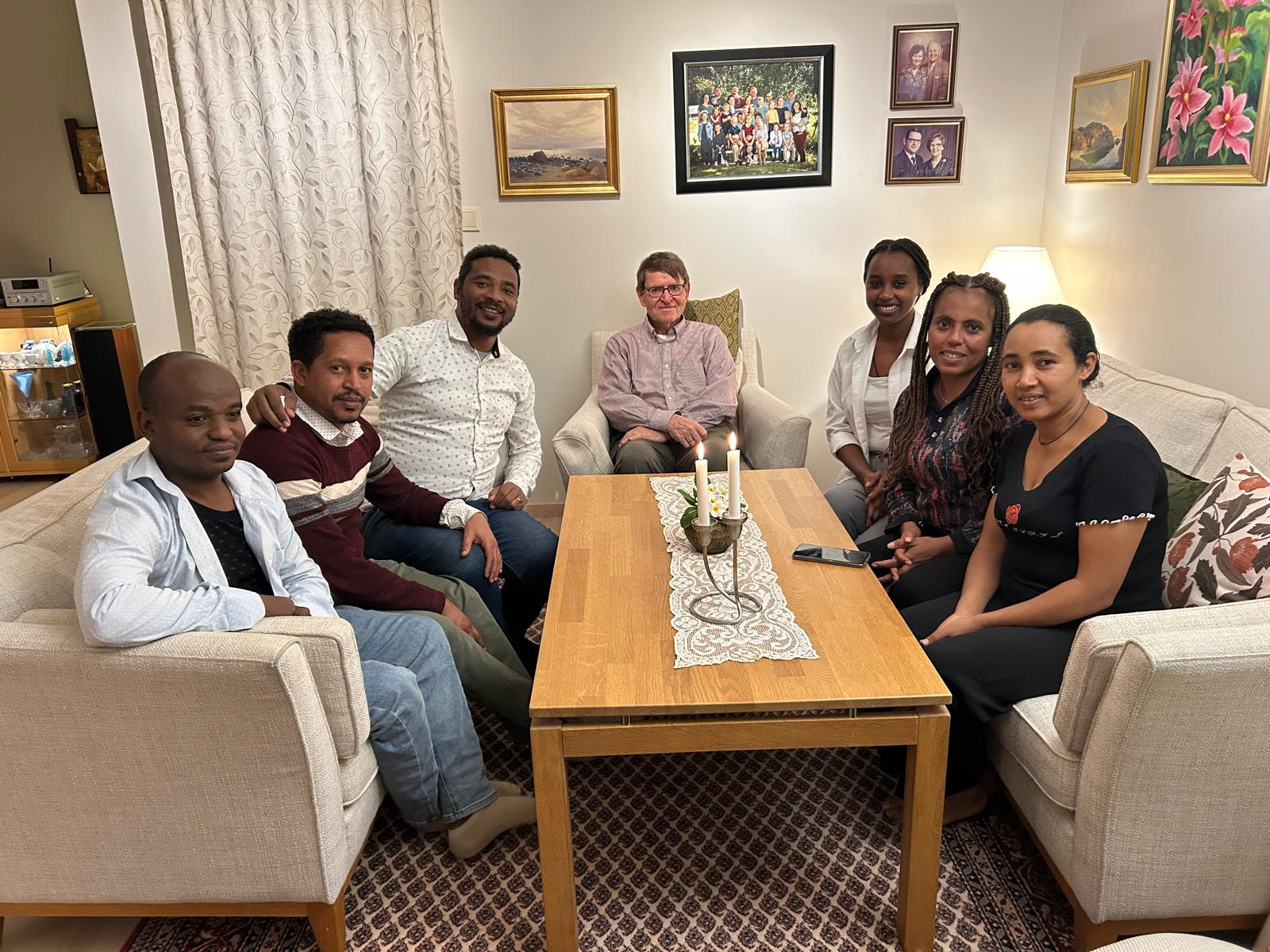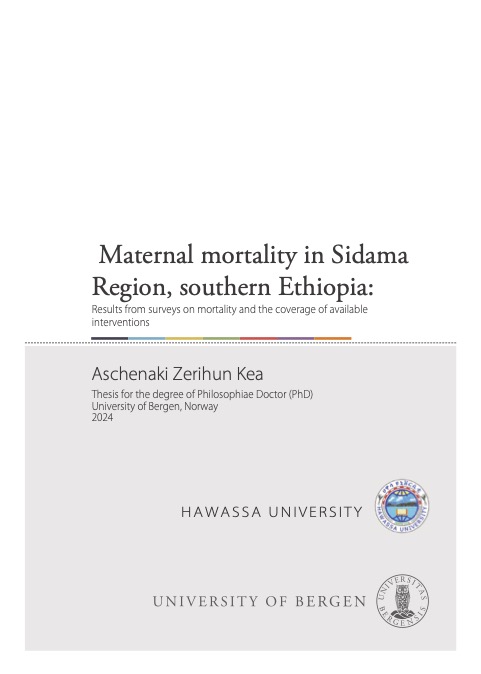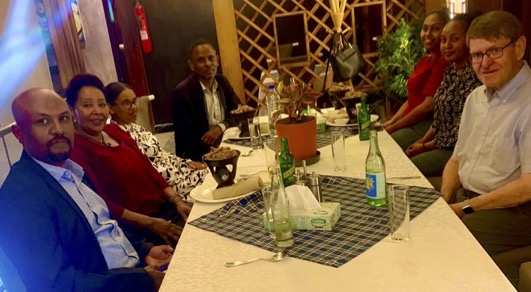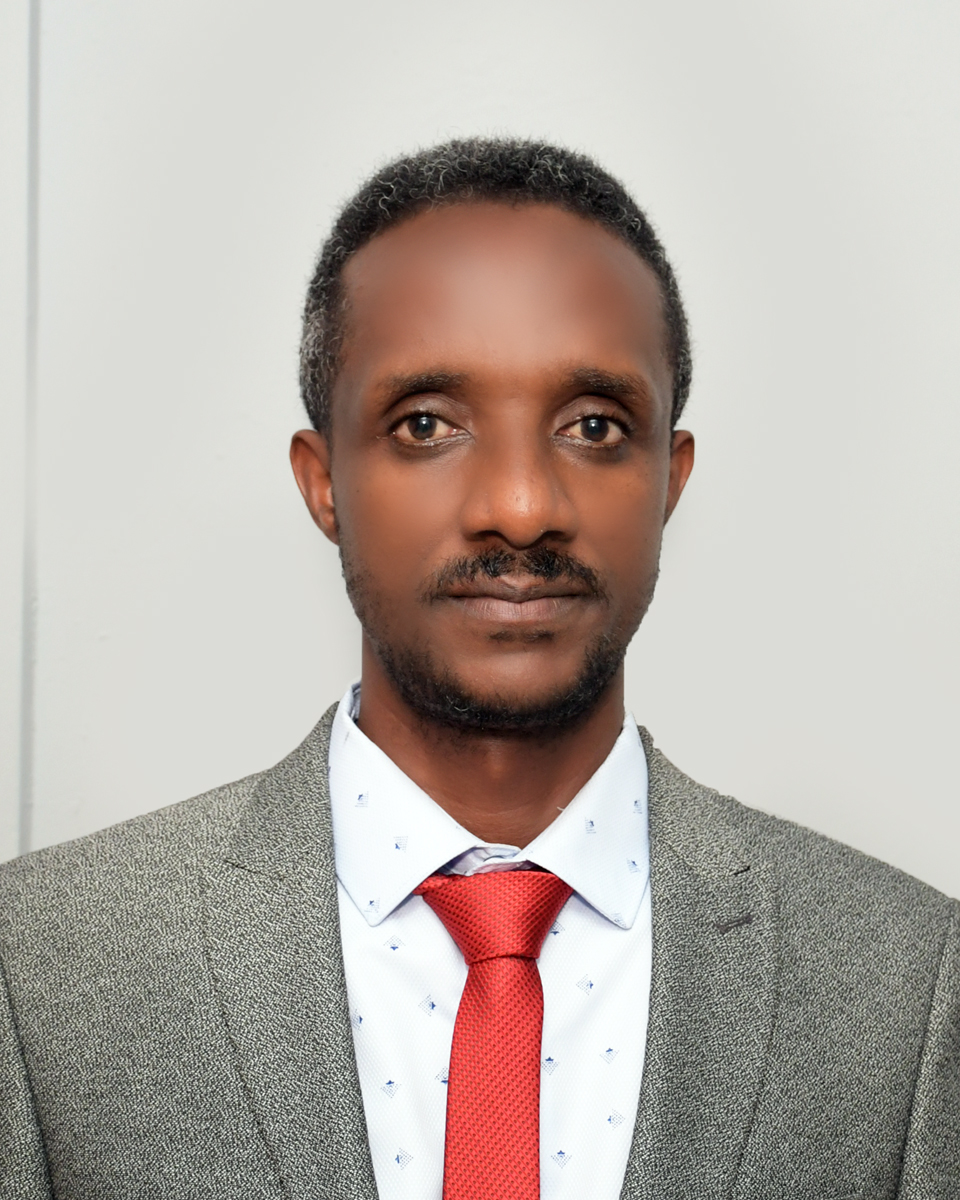This text is written by the Communication Affairs Directorate at Arba Minch University. See
Facebook – https://www.facebook.com/ArbaMinchUniversityCAD/
NORHED-SENUPH II held a progress report workshop at Arba Minch University/AMU and a field visit to the Arba Minch area and Mirab Abaya districts on September 19, 2024. The project, which runs from 2022 to 2027, is a continuation of the NORHED-SENUPH I project, which began in 2014.
 Dr. Alemayehu Chufamo, Vice President for Academic Affairs at AMU, praised the project’s unique approach to capacity building in sponsoring students and staff for MSc and PhD programs. He also expressed his gratitude to Professor Bernt Lindtjørn for devising a mechanism that makes the research process effective.
Dr. Alemayehu Chufamo, Vice President for Academic Affairs at AMU, praised the project’s unique approach to capacity building in sponsoring students and staff for MSc and PhD programs. He also expressed his gratitude to Professor Bernt Lindtjørn for devising a mechanism that makes the research process effective.
Professor Bernt Lindtjørn from the University of Bergen discussed the project’s successes, challenges, and focus areas to sustain the partnership. He mentioned that NORHED-SENUPH II strategically strengthens AMU’s research platforms on vector-borne diseases, advances lab infrastructure and equipment, and supports students and staff focusing on entomology, molecular biology, and immunology research. AMU should work hard to organize all potential to sustain future NORHED funds by promoting scientific and novel ideas, developing new scientific networks and executing the project tasks as planned, he advised.
 The local project coordinator and senior researcher, Dr. Fekadu Massebo, presented the project’s progress report and the current status of the malaria trial. He explained that they are implementing door and window mesh screening and animal treatment intervention to check their impact on malaria epidemiology and fill some of the gaps in the current malaria control strategies, such as drug-resistant malaria parasites, changes in mosquito populations and behaviour, and limitations in current diagnostic and treatment options. These challenges require innovative strategies, Dr. Fekadu noted.
The local project coordinator and senior researcher, Dr. Fekadu Massebo, presented the project’s progress report and the current status of the malaria trial. He explained that they are implementing door and window mesh screening and animal treatment intervention to check their impact on malaria epidemiology and fill some of the gaps in the current malaria control strategies, such as drug-resistant malaria parasites, changes in mosquito populations and behaviour, and limitations in current diagnostic and treatment options. These challenges require innovative strategies, Dr. Fekadu noted.
 The field visit to the trial sites allowed the participants to observe the firsthand project’s activities. It was observed that house mesh-screening has been in place and the communities’ acceptance is exceptionally high which makes the future interventions seem promising. The trial’s unique aspect is bridging the public and veterinary health sectors to combat malaria; the trial evaluation will span 18 months and the findings will be shared with all stakeholders.
The field visit to the trial sites allowed the participants to observe the firsthand project’s activities. It was observed that house mesh-screening has been in place and the communities’ acceptance is exceptionally high which makes the future interventions seem promising. The trial’s unique aspect is bridging the public and veterinary health sectors to combat malaria; the trial evaluation will span 18 months and the findings will be shared with all stakeholders.
The NORHED-SENUPH II project focuses on building research capacity, supporting existing MSc programs, and expanding support for the PhD program on Infectious Diseases. The project is conducting a large malaria trial in the Southern Rift Valley of Ethiopia. The trial aims to combat malaria by using mesh screens on houses to prevent mosquitoes from entering and treating animals with ivermectin to kill the mosquitoes they feed on. Over 8,000 people in 12 Kebeles in the Arba Minch and Mirab Abaya districts are included in the trial. Several stakeholder meetings have also been held to enhance community participation and ownership.








